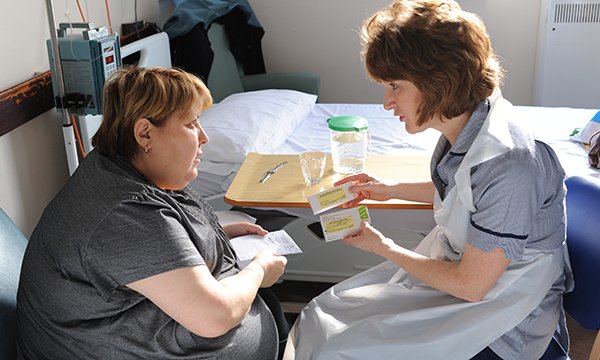Introduction
Nursing is not just my career. It allows me to practice a profession I am passionate about. My dream while growing up was to be a nurse, to serve and care for people. Every time I went to the hospital when I was young, I saw how nurses were passionate about taking care of their patients wholeheartedly. The nurses’ commitment touched my heart, and I felt that my purpose in life was to be part of that great team. I, therefore, purposed to become a nurse from a young age. I worked hard in school and gained admission to study nursing. My main agenda of being a nurse is to give hope, protect, and serve people who require my services with love, respect, and integrity while upholding their dignity. This work describes elements that make an extremely great nurse.
Elements That Make Me a Great Nurse
Empathy
A great nurse can create a rapport with his/her patient. Empathic nurses can put themselves in the place of their patients, they have a deeper understanding of what the patients are going through (Kim et al., 2019). Empathy enables nurses to establish quality professional relationships with patients under their care. A good connection between the nurses and the patients enhances the process of care and, in turn, promotes well-being. The Figure 1 below pictures a good relationship between a nurse and a patient.

Compassion and Respect
Most patients and their families are already emotionally and physically exhausted from dealing with the illness, compassion, and respect can make them feel better and valued. A nurse must uphold respect for all individuals and provide services that enhance human dignity through care and communication (Haddad & Geiger, 2018). In addition to the patient, nurses need to treat their families with respect. Nurses must understand the professional guiding principles of communication and work with colleagues and patient families to improve the patient’s well-being. The figure 2 below shows a nurse being compassionate with a patient.

Commitment
A nurse cannot completely and successfully execute his/her mandate without being committed. The nurse’s primary obligation is to the patient, whether an individual, family, group, or community (Haddad & Geiger, 2018). It is through commitment that a nurse can make a patient’s care the uttermost concern. Nurses should be able to address things like conflicting ideas and beliefs that might distract them from paying attention to the needs of their patients (Haddad & Geiger, 2018). Additionally, nurses should be ready to work with other professionals for patients’ betterment.
Protecting the Patients’ Rights
One of the obligations of nurses is to promote, advocate for, and protect the rights, health, and safety of the patient. The law protects patients, the nurse needs to know all the guidelines regarding patient care. It is the right of the patient to have information about their diagnoses, care, and medication (Kim et al., 2019). The nurse should be aware of national and institutional guidelines to ensure that they practice in line with all the regulations (Butts & Rich, 2022). Nurses must inform patients of the rights to accept or refuse certain treatments, patients require to make informed decisions before giving their consent to treatment. The figure 3 below shows a nurse educating a patient on medication.

Decision Making
Proper decision-making in nursing is very crucial, handling human life is delicate and any wrong choice can result in adverse repercussions or even death for patients. The nurses have the liberty, accountability, and responsibility to make decisions that enhance care and uphold human dignity (Butts & Rich, 2022). Nurses’ utilization of authority must be professional, in line with what is best for the patient, and follow ethical guidelines. In nursing, decisions have to be well thought out, planned, and purposefully implemented responsibly.
Self-Care and Development
To take care of patients competently, nurses have to be fit physically and mentally. The nurse should take care of their health, ensure safety, maintain their character, integrity, and competence, and continue personal and professional growth (Mills et al., 2018). In addition to engaging in practices that protect and enhance patient wellness, nurses should equally engage in activities that protect them from contracting the disease and being emotionally entangled with their patients. Further nurses should ensure that they too seek professional help to promote their physical and emotional health (Mills et al., 2018). Career growth is also necessary important for nurses to ensure they are up to date with medical information and technology. The figure 4 below indicate nurses engaging in a self-care routine.

Ethical Practice
Nurses cannot practice without ethics, nursing ethical standards require nurses via individual and collective efforts to establish, maintain, and improve the working environment ethically for safe and quality health care. Nursing is guided by both institutional and external ethical regulations (Haddad & Geiger, 2018). Nurses must at all times act under these ethics failure to which they face consequences. The ethical guidelines create checks and balances for nurses and patients hence ensuring professional practice.
Collaborating with Other Practitioners
Nurses have to work in conjunction with other practitioners for the overall well-being of their patients. A good nurse must be a team player willing to work with whomever they are required to work with for better patient outcomes (Butts & Rich, 2022). In healthcare, patients are always transferred from one unit to another or even from facility to facility, nurses are majorly involved in the process of referring patients. Therefore, they must be willing to receive or hand over patients. Additionally, nurses must also be prepared to work in different units to gain more experience and exposure. The following figure 5 shows a nurse collaborating with other practitioners.

Integrity and Social Justice
A great nurse must always be honest and morally upright in their practice. They must act according to the values upheld by the nursing profession. Additionally, nurses are required to voice their ideas and thoughts to enhance policies that promote healthcare (Butts & Rich, 2022). There is a need for continued political awareness to maintain the integrity of the nursing profession. Further, nurses should be involved in carrying out research that provides data and insights for the betterment of the nursing profession.
Conclusion
This study has revealed that nursing is a profession only for those who are passionate about it. The literature has revealed that nurses have very many obligations to fulfill to ensure the well-being of their patients. Additionally, nurses are always guided by ethical standards and cannot practice outside the regulation because they deal with matters of life and death. The study has also revealed that a nurse has to be physically and mentally fit to help patients. Therefore, nurses have to practice self-care and also ensure self-growth and development. Having gone through this study and understood what it takes to be a great nurse, I am very confident that with my passion, skills, and knowledge, I will make a great nurse.
References
Butts, J. B., & Rich, K. L. (2022). Nursing ethics: Across the curriculum and into practice. Jones & Bartlett Learning.
Haddad, L. M., & Geiger, R. A. (2018). Nursing ethical considerations. Web.
Kim, G.U., Jung, E., Cho, M., Han, S.Y., Jang, M., Lee, M., Lee, S., Suh, Y., Yun, H.Y., Kim, S. and Shim, M.S., (2019). Revisiting the meaning of a good nurse. The Open Nursing Journal, 13(1) 75-84. Web.
Mills, J., Wand, T., & Fraser, J. A. (2018). Exploring the meaning and practice of self-care among palliative care nurses and doctors: a qualitative study. BMC palliative care, 17(1), 1-12. Web.
Morris, S. (2016). Interprofessional teamwork–the key to safe patient care. Web.
NursingStandard, (2019). Why nurses must facilitate patient education. Web.
The Resiliency Solution, (2021). How can nurses provide emotional support for patients? Web.
The University of Texas, (2021). Why self-care is vital for your nursing career. Web.
Wood, D. (2016). Nurses’ compassionate care affects patient outcomes. Web.
